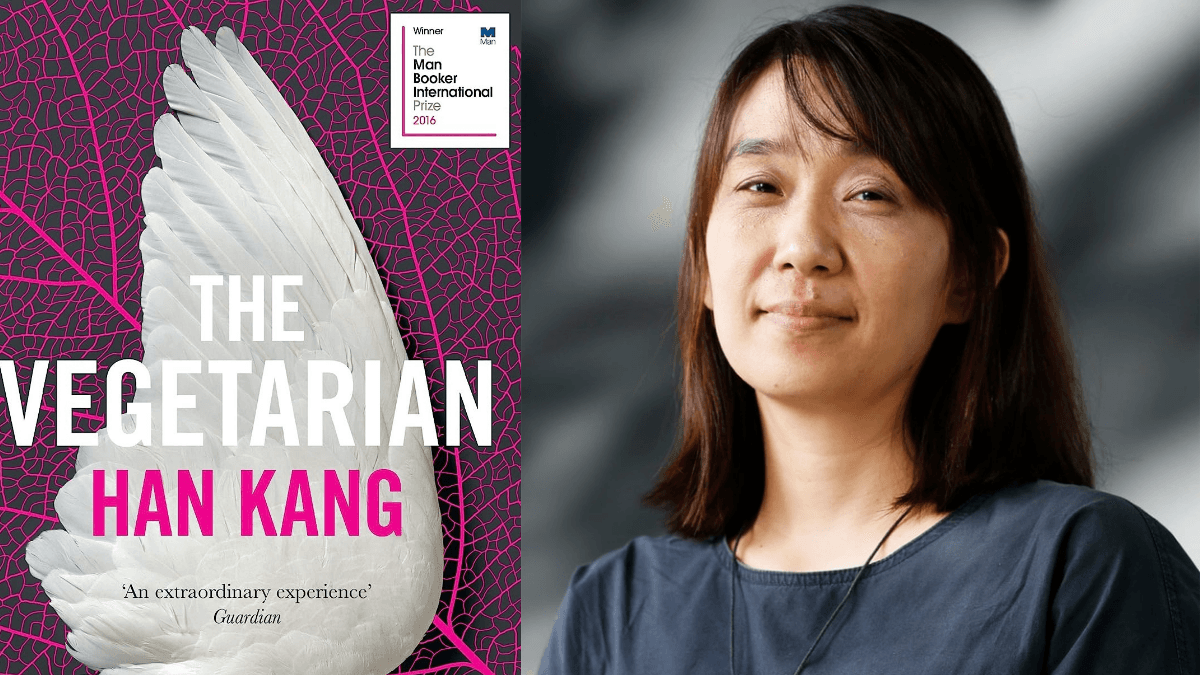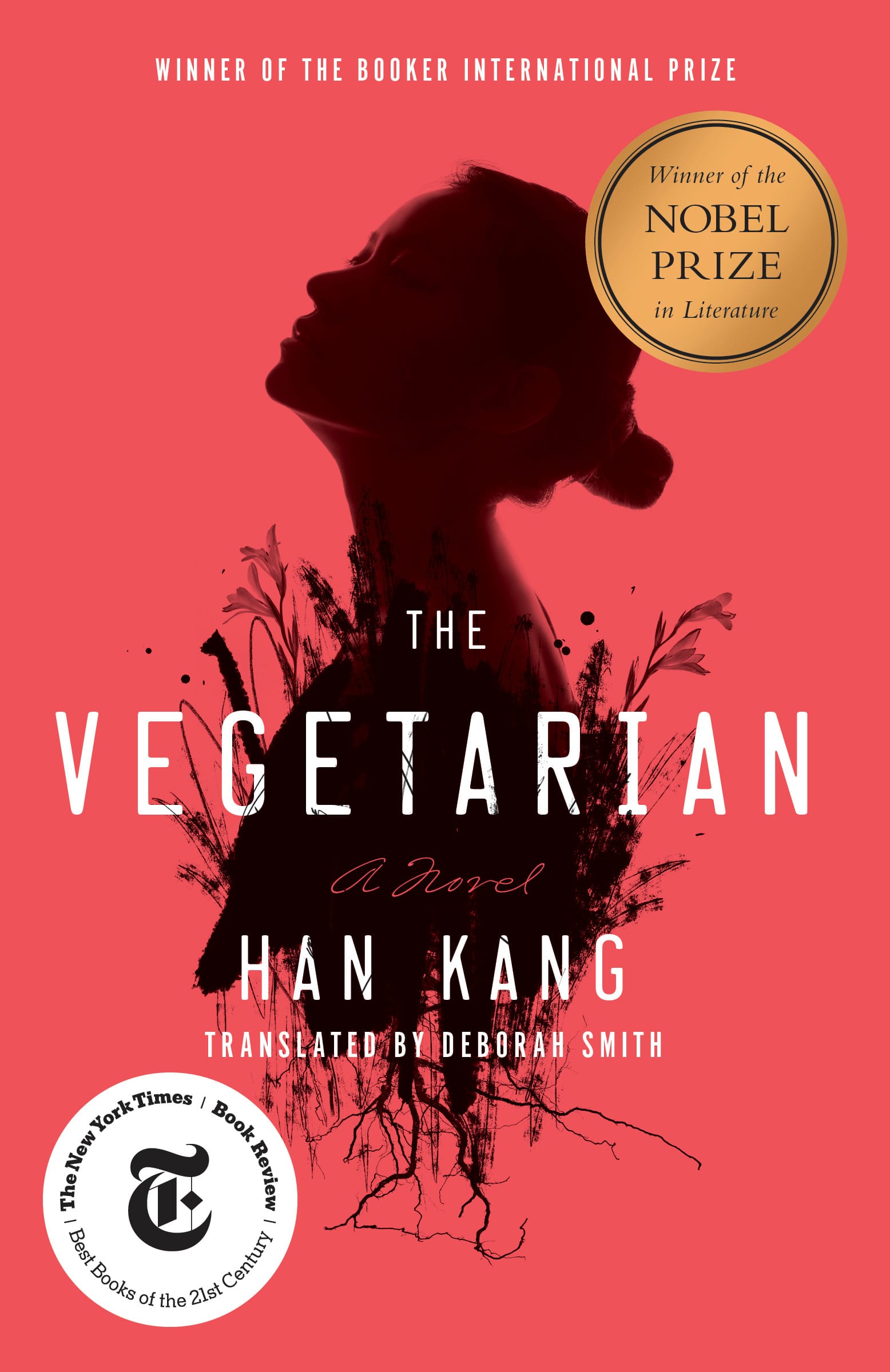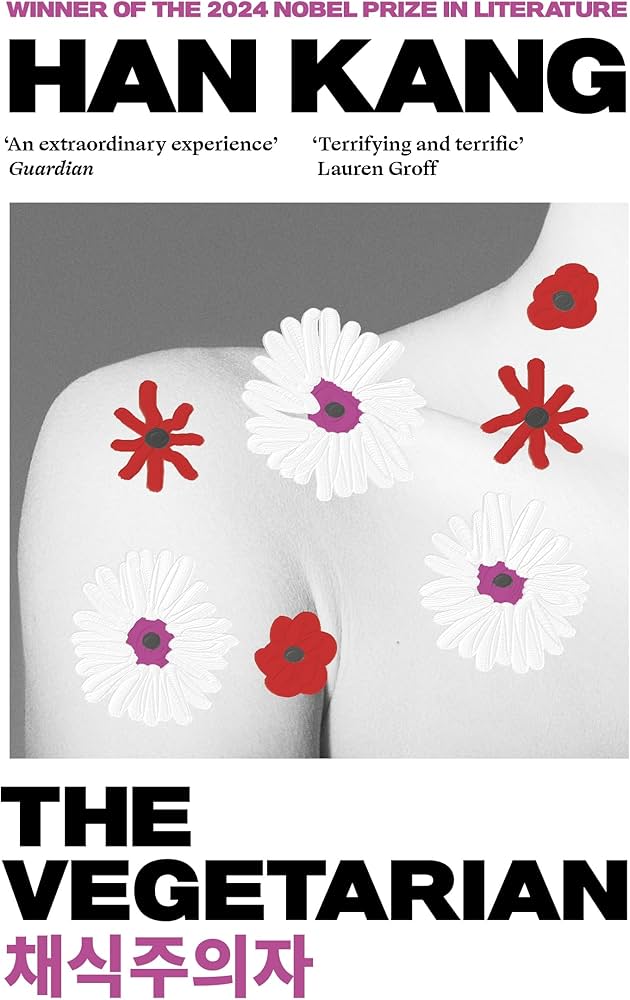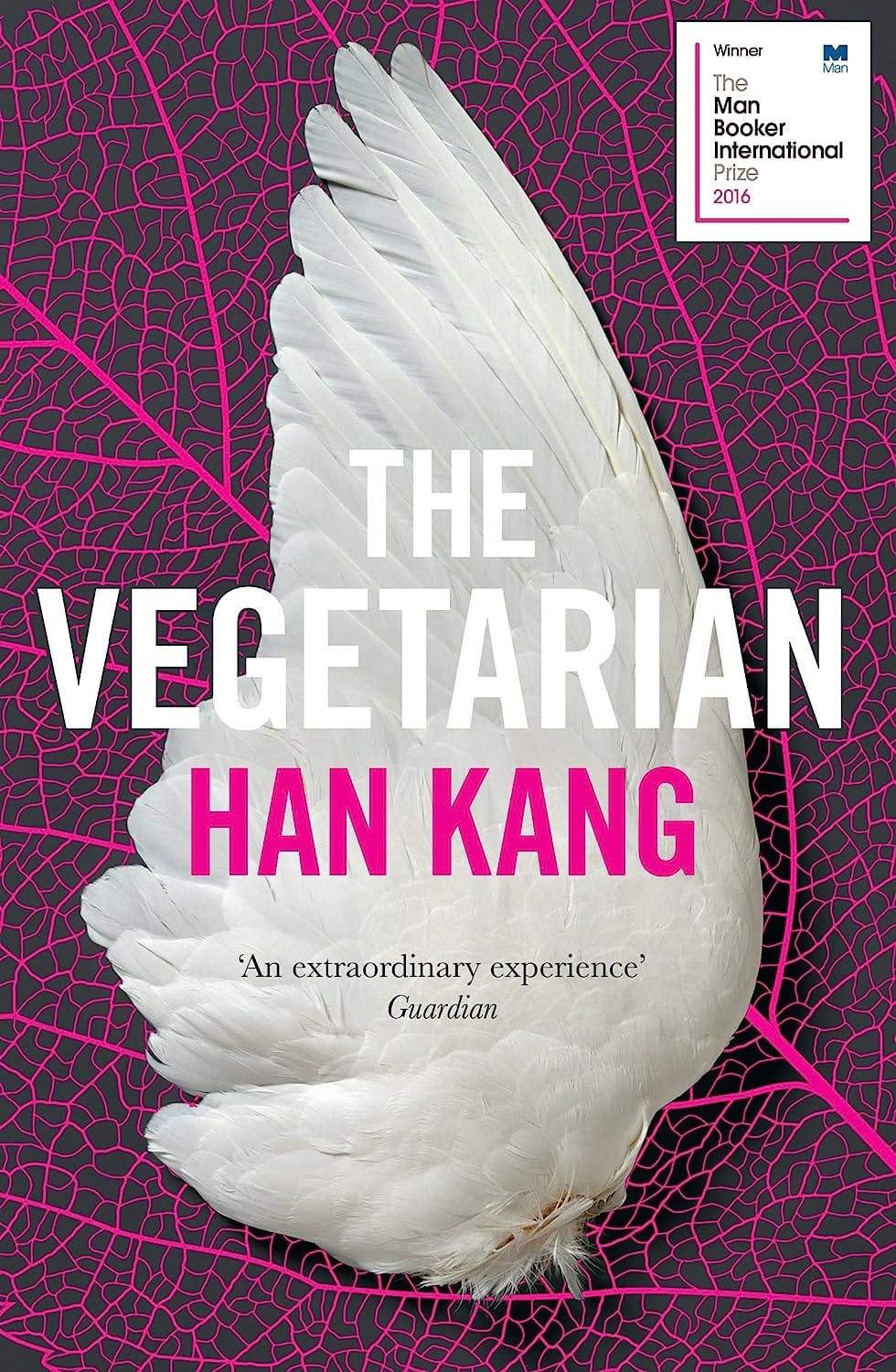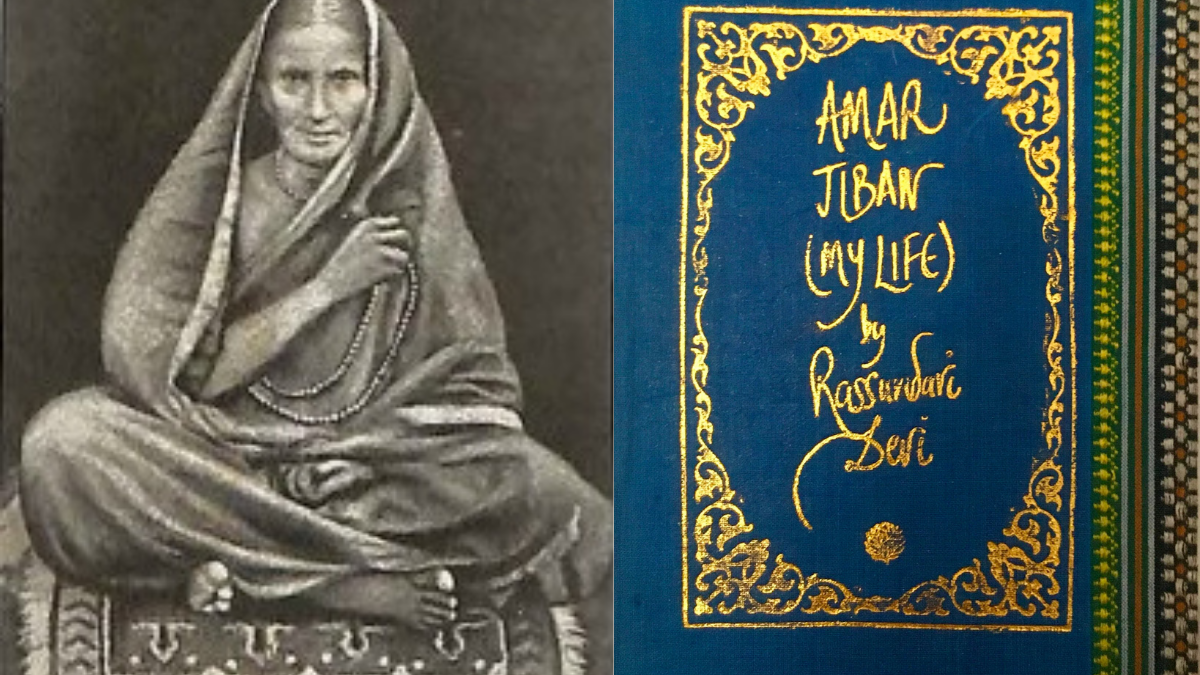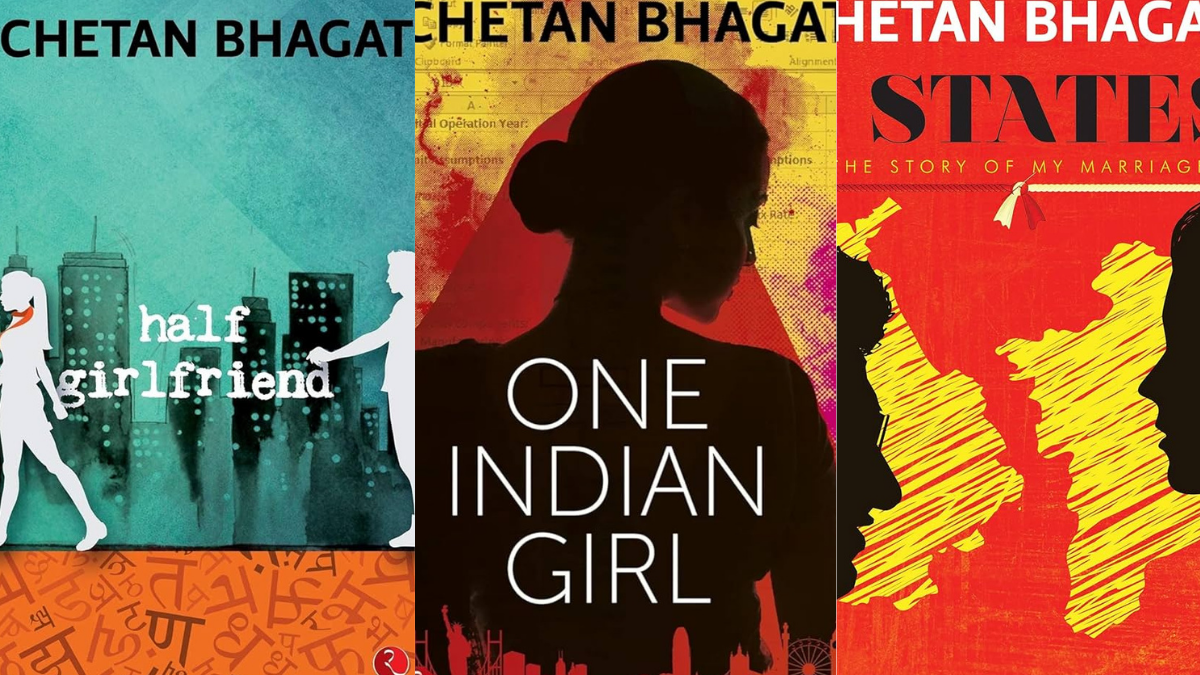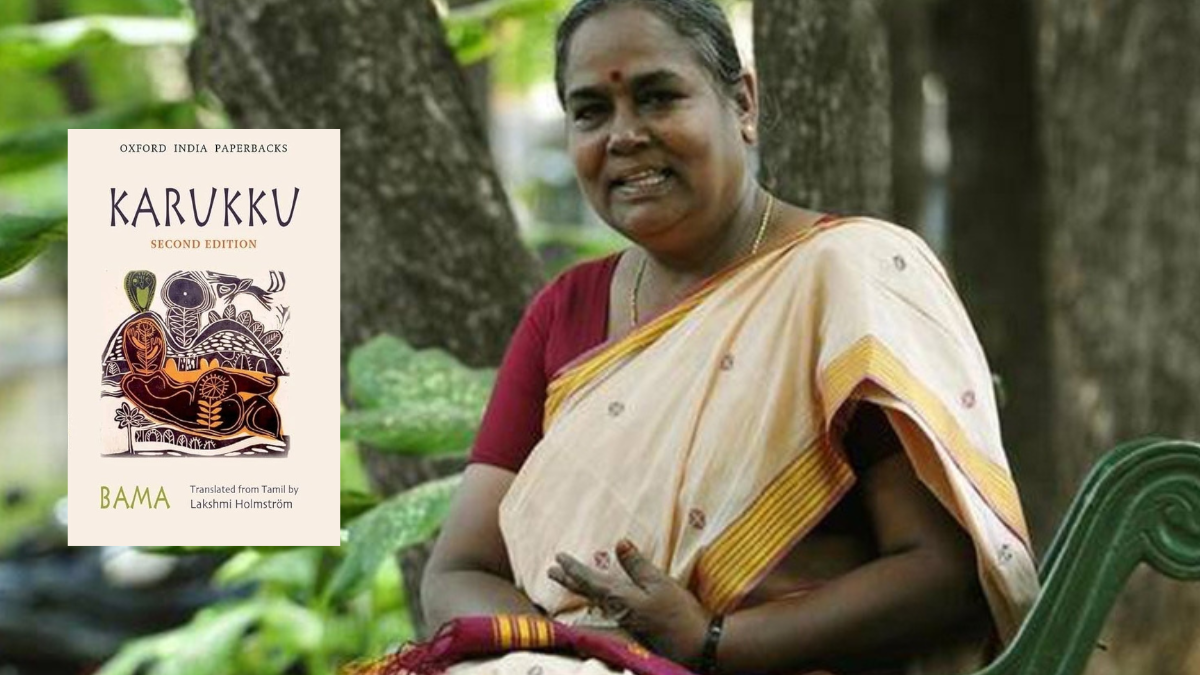‘I had a dream.’ This simple statement causes the protagonist in Han Kang’s The Vegetarian (채식주의자) translated by Deborah Smith, to change her life, trying to achieve a more plant-like existence, a decision that goes against her husband’s and her family’s wishes. Throughout the novel, the protagonist, Yeong-Hye, consciously renounces the inherent violence of human nature, reverting to nature. The question of violence and its interconnection with human nature makes its presence known throughout the book, as it does in our lives as well, the question impossible to deflect as we go about our daily lives.
The Vegetarian and meat consumption
The Vegetarian, an extrapolation of the 1997 short story by the same author called The Fruit of My Woman, is divided into three novellas, ‘The Vegetarian’, ‘Mongolian Mark’, and ‘Flaming Trees’. At the outset, Han Kang’s novel is about a woman who gradually descends into madness, as she struggles to adjust to a society that places enormous importance on meat eating after she turns vegetarian. Kang took inspiration for this International Man Booker-winning novel, from a quote by the noted Korean liberation activist and author Yi Sang, ‘I believe that humans should be plants.’.
Kang took inspiration for this International Man Booker-winning novel, from a quote by the noted Korean liberation activist and author Yi Sang, ‘I believe that humans should be plants.’.
In The Vegetarian, Yeong-Hye, gives up meat after a dream, a dream in which she realises that the souls of all the animals whose meat she has consumed so far, are present within her, ‘Blood and flesh, all those butchered bodies are scattered in every nook and cranny, and though the physical remnants were excreted, their lives still stick stubbornly to my insides.‘
Yeong-Hye’s refusal to consume meat is her attempt to neutralise the violence that she has wrought throughout her life, a thought process that is both mature and juvenile, as shown through this dialogue, ‘Can only trust my breasts now. I like my breasts, nothing can be killed by them. Hand, foot, tongue, gaze, all weapons from which nothing is safe. But not my breasts. With my round breasts, I’m okay. Still okay. So why do they keep on shrinking? Not even round anymore. Why? Why am I changing like this? Why are my edges all sharpening — what I am going to gouge?‘ Deborah Smith’s translation brings out the frantic, fragmented quality of Yeong-Hye’s thought process, which, to mitigate the violence wrought by eating meat, slips in and out of consciousness and conscious thought.
South Koreans eat more meat than even the staple Asian food, rice, and the per capita meat consumption of the country surpassed sixty kilograms last year, with pork being the highest consumed meat for Koreans. In a society that places such importance on the consumption of meat, Yeong-Hye’s refusal to engage in eating meat simultaneously makes her an outsider and a source of anger. When her husband, Mr Cheong, takes her along to one of his company dinners, he refuses to treat her vegetarianism as a valid lifestyle, instead speaking over her and insisting it was the doctor’s orders.
For Yeong-Hye, vegetarianism is her first step towards becoming one with nature, for the rest of society, it is an annoyance that must be treated. One could argue that even before her dream, Yeong-hye wanted to be free, freer than the restrictions imposed on women by Korean society; by not wearing a bra, her actions become a statement of freedom, not merely of expression and clothing, but also the body, ‘She tried to justify herself by saying that she couldn’t stand wearing a bra because of the way it squeezed her breasts, and that I’d never worn one myself so I couldn’t understand how constricting it felt.‘
Yeong-Hye, even before she turns vegetarian to become a plant, desires freedom.
Yeong-Hye, even before she turns vegetarian to become a plant, desires freedom. While we hear Mr. Cheong say that she was the perfect candidate for marriage because she was ‘perfectly average‘ we might assume that marrying Mr. Cheong was something Yeong-Hye did, simply to pursue the ‘middle path‘. Marrying someone is the expected course of action for women, even now in the 21st century. Yeong-Hye’s pursuit of what is expected is the story of many women, whose desire for freedom and self-expression is subdued under societal mores.
Yeong-Hye’s apparent transgression has violent aftereffects, as well. When her parents find out about her vegetarianism, their preferred course of action is not to hear her words or her thought processes, but to force-feed her meat, an act of violence by her entire family. Food and its consumption, for Yeong-Hye, descends into violence, both psychological and physical. Psychological violence begins when her mother sets down dishes of ‘sweet and sour pork, steamed chicken, and octopus noodles,‘ setting them in front of her and begging her to eat something.
What begins with psychological violence, ends with the physical, when her father force-feeds her sweet and sour pork, while her brother holds her arms so that she cannot refuse. As retaliation, Yeong-Hye cuts open her wrist in front of the whole family, bringing an end to this violent saga by performing ritualistic self-sacrifice in front of her family. Everyone seems to have a position on Yeong-Hye’s vegetarianism, however, there is little attention paid to her thoughts, only that of dismissal. One could argue that her suicide attempt is an attempt at freedom, but we do not know Yeong-Hye’s inner thoughts to know that much.
The violence of nature in The Vegetarian
Yeong-Hye’s thought process, as well as ours, that by renouncing meat, she would be able to escape the vicious cycle of violence that the world operates on, is broken soundly in the second novella, “Mongolian Mark”, where we view her through the eyes of her brother-in-law, an artist, who views her first as an object of artistic desire, then as an object of sexual desire, and finally, simply as a vegetal being. “Mongolian Mark” is a reminder of the violence of nature, which Yeong-Hye wants to be a part of. Nature in Han Kang’s writing, is not a benevolent entity. It is a primeval being, borne out of millennia of human despair, eroticism, and longing.
The nature that Yeong-Hye so desperately wishes to be a part of, is what renders her irresistible to her brother-in-law, who takes advantage of her mental state and initiates sexual relations with her, both in his dreams and in reality. In his dreams, he views her as a plant already, ‘Her skin was a pale green. Her body lay prone in front of him, like a leaf that had just fallen from the branch, only barely begun to wither. The Mongolian mark was gone; instead, her whole body was covered evenly with that pale wash of green.‘
In-Hye’s unnamed husband, who remains unnamed throughout the novel, is reminded of his dreams of her, even as he engages in the physical act of lovemaking, reeling from the implications of their shared act, ‘He shuddered at the appalling nature of their union, a union of images that were somehow repellent and yet compellingly beautiful. Every time he closed his eyes he could see the lower half of his body dyed green, soaked from the stomach to the thighs with a sticky, grassy sap.‘ In-Hye’s husband’s dream, where he views his sister-in-law as an object of sexual desire, are events where she is reminiscent of a plant, or painted all over with flowers.
The vegetal state, Yeong-Hye, and In-Hye
As Yeong-Hye’s condition worsens, she’s shifted to a countryside psychiatric hospital, where she refuses to eat food, even vegetarian. As her sister In-Hye continues her visits, Yeong-Hye visibly retreats into her shell and continues on her journey of becoming a plant. She runs away from the hospital, only to be found deep in the mountain woods, ‘standing there stock-still and soaked with rain as if she herself were one of the glistening trees.‘
This is the final stage of madness; a process that began with a dream, a dream that propelled Yeong-Hye to give up meat entirely.
This is the final stage of madness; a process that began with a dream, a dream that propelled Yeong-Hye to give up meat entirely. In-Hye refuses to understand even as she slips more and more into the very same consciousness that her sister possesses, ‘…saw a tree flickering in the rain like the spirit of some dead person. Black rain, black woods, the pale patient’s uniform, soaked through. Wet hair. Black mountain slope. Yeong-hye, an inchoate mass formed of darkness and water, standing tall like a ghost.‘
In-Hye is the only person in the family who understands Yeong-Hye, or makes an attempt to, ‘Might it be okay, after all, for Yeong-Hye to live like this indefinitely? Here, where she didn’t have to speak if she didn’t want to, didn’t have to eat meat if the thought repulsed her?‘ If the trigger for Yeong-Hye’s vegetarianism and madness is a sense of guilt, In-Hye’s is that of maternity. Her maternal instinct and relationship with her sister, as women shunned in their family for not being a male child, is the connecting thread of their twin shared madness.
‘Yeong-hye was four years younger than her, enough of an age gap for them not to have been in competition with each other growing up…Yeong-hye had provoked in In-hye a sense of responsibility that resembled maternal affection, a need to expend all her energy in looking out for this younger sister.‘ In the end, as the two of them are being shifted to a psychiatric hospital, In-Hye looks out at the trees, waiting for an answer that never comes. Like her sister, In-Hye too, is turning into a plant, her acts of defiance not towards nature but towards society.
Eroticism and nature in The Vegetarian
In the Bible, the primordial nature of Man was to be one with nature in the Garden of Eden, until Knowledge forced them away from it. In-hye, when faced with the sight of the sexual relationship between her husband and her sister, is initially shocked, but towards the end, she remembers how the scene looked to her, ‘…twined together like jungle creepers. Of course, it had shocked her at the time, and yet oddly enough, the more time went by the less she thought of it as something sexual. Covered with flowers and leaves and twisting green stems, those bodies were so altered it was as though they no longer belonged to human beings. The writhing movements of those bodies made it seem as though they were trying to shuck off the human.‘
To be a part of nature is to acknowledge the original sin, which led man away from Nature, out of Heaven, and onto Earth. While The Vegetarian is by no means a religious allegory, one wonders about the thought process of Yeong-Hye, whose words we hear so little of, we view her through everyone else’s eyes. From the beginning, she is a plant, her goal is achieved by the accident of her birth.
